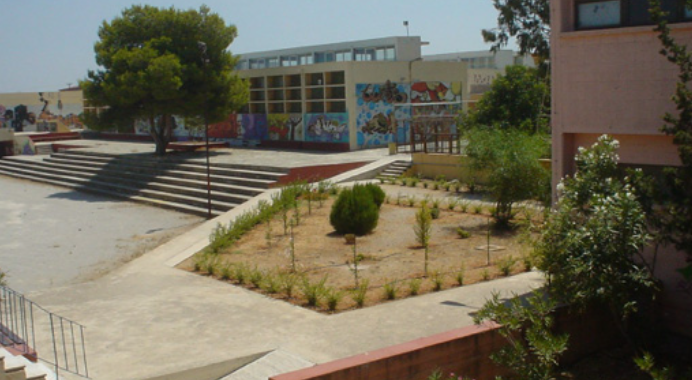Crete, the largest of the Greek islands, is renowned for its rich history, stunning landscapes, and vibrant culture. For families moving to or residing on the island, understanding the local education system is crucial to ensuring a smooth and successful academic journey for their children. This guide provides an overview of Crete’s education system, highlighting key features, options, and practical advice for parents and students.
Overview of the Greek Education System
The Greek education system is structured into three main stages: primary, secondary, and tertiary education. The system is overseen by the Ministry of Education, Research, and Religious Affairs, ensuring a standardized curriculum across the country, including Crete.
Primary Education
Primary education, or “Dimotiko Scholio,” caters to children aged 6 to 12. It is mandatory and consists of six grades. The curriculum includes a wide range of subjects such as Greek language, mathematics, science, history, geography, physical education, and the arts. English is introduced as a second language, with other languages like French or German offered in higher grades.
Secondary Education
Secondary education is divided into two stages: Gymnasium and Lyceum.
Gymnasium: This lower secondary education stage is for students aged 12 to 15 and spans three years. The curriculum builds on the subjects taught in primary school, with additional emphasis on subjects like ancient Greek, literature, and social studies. Gymnasium is also mandatory, ensuring that students receive a well-rounded education.
Lyceum: Upper secondary education, known as Lyceum, is for students aged 15 to 18 and includes three grades. It offers two main pathways: General Lyceum (GEL) and Vocational Lyceum (EPAL). General Lyceum focuses on academic subjects and prepares students for higher education, while Vocational Lyceum combines general education with technical and vocational training, leading to professional qualifications.
Educational Options in Crete
Crete offers a variety of educational options to cater to the diverse needs and preferences of families.
Public Schools
Public schools are the most common educational institutions in Crete. They follow the national curriculum and are funded by the government, making them free of charge. Public schools are widely available across the island, providing accessible education to all residents.
Private Schools
Private schools in Crete offer an alternative to the public system. These schools often provide a more diverse curriculum, smaller class sizes, and additional extracurricular activities. Many private schools in Crete follow international curricula, such as the International Baccalaureate (IB) or British and American educational systems, making them a popular choice for expatriate families.
Examples of Private Schools in Crete:
- Heraklion: The American School of Crete offers an American-style education with an emphasis on critical thinking and creativity.
- Chania: The British School of Crete provides a British curriculum and prepares students for international qualifications such as IGCSEs and A-Levels.
International Schools
International schools cater to expatriate families and offer curricula recognized worldwide. These schools provide a multicultural environment and often have staff and students from diverse backgrounds. International schools in Crete are well-regarded for their high academic standards and comprehensive extracurricular programs.
Special Education
Crete also accommodates students with special educational needs. Public and private schools often have specialized programs and resources to support children with learning disabilities, physical disabilities, or other special needs. Additionally, there are dedicated special education schools and centers on the island.
Practical Advice for Parents and Students
Navigating the education system in a new country can be challenging. Here are some practical tips to help parents and students in Crete:
- Research Schools: Take the time to research and visit schools to find the best fit for your child’s needs and preferences. Consider factors such as curriculum, extracurricular activities, class sizes, and school facilities.
- Understand the Admission Process: Each school may have different admission requirements and timelines. Ensure you understand the application process, required documents, and deadlines.
- Language Considerations: While many schools in Crete offer language support for non-Greek speakers, it can be beneficial for expatriate children to learn some basic Greek to help with their integration and daily interactions.
- Engage with the Community: Get involved in school activities and parent-teacher associations to build a support network and stay informed about your child’s education and school events.
- Support Your Child’s Transition: Moving to a new education system can be challenging for children. Provide emotional support and encourage open communication to help them adjust and thrive in their new environment.
- Explore Extracurricular Activities: Crete offers a wide range of extracurricular activities, from sports and arts to cultural clubs. Encourage your child to participate in these activities to enhance their social skills and personal development.
Higher Education Opportunities
For students seeking higher education, Crete is home to several esteemed institutions, such as the University of Crete and the Technical University of Crete. These universities offer undergraduate and postgraduate programs in various fields, attracting students from across Greece and around the world.
Conclusion
Navigating Crete’s education system involves understanding the structure, exploring various educational options, and supporting your child through the transition. Whether you choose public, private, or international schools, Crete offers a rich and diverse educational landscape that can cater to the needs of every family. By staying informed and engaged, parents can ensure their children receive a high-quality education and thrive in their new academic environment. Embrace the journey and discover the wealth of educational opportunities that Crete has to offer.


